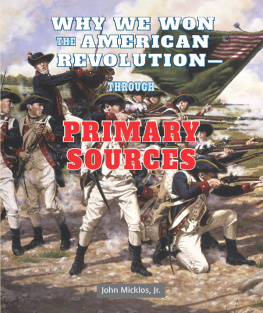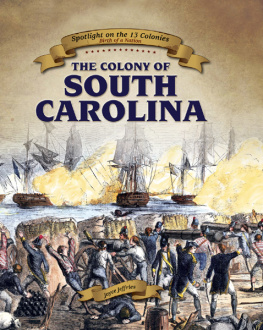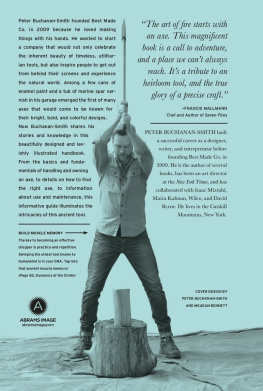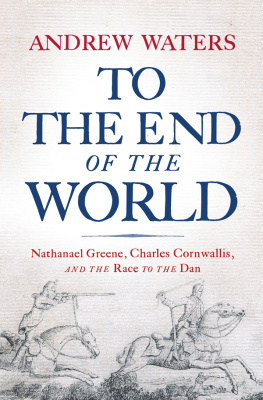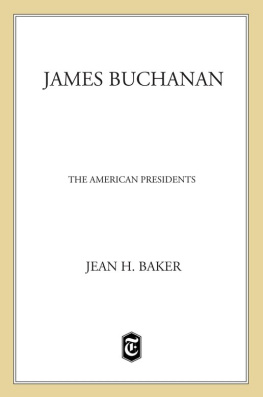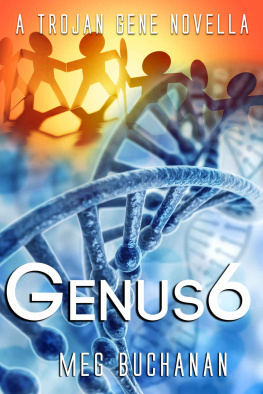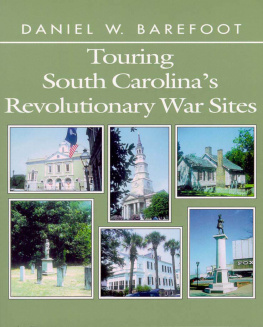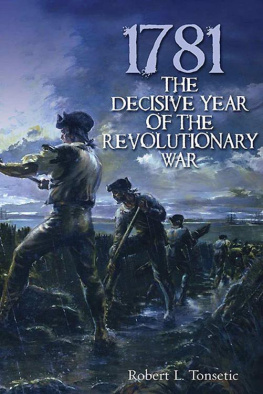The Road
to Guilford Courthouse
The Road
to
Guilford Courthouse
The American Revolution
in the Carolinas
John Buchanan

The illustration on the title page is A View of Charles Town by Thomas Leitch, c. 17731774. From the collection of the Museum of Early Southern Decorative Arts, Winston-Salem, North Carolina. Used with permission.
This book is printed on acid-free paper.
Copyright 1997 by John Buchanan. All rights reserved
Published by John Wiley & Sons, Inc.
Published simultaneously in Canada
No part of this publication may be reproduced, stored in a retrieval system or transmitted in any form or by any means, electronic, mechanical, photocopying, recording, scanning or otherwise, except as permitted under Sections 107 or 108 of the 1976 United States Copyright Act, without either the prior written permission of the Publisher, or authorization through payment of the appropriate per-copy fee to the Copyright Clearance Center, 222 Rosewood Drive, Danvers, MA 01923, (978) 750-8400, fax (978) 750-4744. Requests to the Publisher for permission should be addressed to the Permissions Department, John Wiley & Sons, Inc., 605 Third Avenue, New York, NY 10158-0012, (212) 850-6011, fax (212) 850-6008, E-Mail: PERMREQ @ WILEY.COM.
This publication is designed to provide accurate and authoritative information in regard to the subject matter covered. It is sold with the understanding that the publisher is not engaged in rendering professional services. If professional advice or other expert assistance is required, the services of a competent professional person should be sought.
Library of Congress Cataloging-in-Publication Data
Buchanan, John
The road to Guilford Courthouse : the American revolution in the Carolinas / John Buchanan,
p. cm.
Includes bibliographical references and index.
ISBN 0-471-32716-6 (paper)
1. North CarolinaHistoryRevolution, 17751783Campaigns.
2. South CarolinaHistoryRevolution, 17751783Campaigns.
3. United StatesHistoryRevolution, 17751783Campaigns.
I. Title.
E263.N8B83 1997
973.393dc20 969575
Printed in the United States of America
10 9 8
To my wife, Susi,
and my brother, Charles
Contents
Preface
This book is about the British campaign of 17801781 to regain the Carolinas from the American Rebels. On learning of my subject, a friend of mine, well educated, well read, intellectually curious, looked surprised and admitted, I really dont know what happened south of Philadelphia. He is not alone. Despite copious writings and intense study beginning in the decade it occurred and continuing to this day, it remains for the reading public an historical terra incognita. Yet the tactical masterpiece of the War of the Revolution occurred in the South, and a battle long, bloody, and obstinate that went far in deciding the great issue at stake. We will also witness in the southern Back Country a little known but savage civil war far exceeding anything in the North.
Now to turn to a few technical matters. Eighteenth-century spelling, although somewhat imaginative, is not a challenge to comprehension, and I have transcribed words as spelled by the writers without the intrusion of the annoying (sic). I have also retained the erratic but delightful eighteenth-century manner of captalization. Punctuation is a different matter. Ours is a vast improvement over eighteenth-century practice, in which overuse of commas and semicolons is exasperating when reading and transcribing. I have been occasionally ruthless in eliminating the many marks so dear to those pesky punctuators, but not, I emphasize, at the risk of creating ambiguities or changing meanings.
I use the term English and British interchangeably, although British rightly referred then as now to English, Scots, Welsh, Anglo-Irish, and the Protestant inhabitants of the province of Ulster in Northern Irelandand those Americans who stayed loyal to the Crown and became known to their enemies and forevermore as Tories. The latter called themselves Loyalists and sometimes in battle to identify themselves, Kings Friends. It is currently fashionable to use their terminology, but I prefer Tory because it is short, descriptive, and sanctified by two centuries of popular usage: there can be no mistake to whom one is referring.
For the same reasons I use the word Rebel to refer to the American revolutionaries. They never used the word. They called themselves Whigs or Patriots. It will be quite clear in the text that when I refer to the American army, or American militia, I am referring to the Rebels. The Tories were also Americans, of course, but one has to draw the line somewhere.
In the eighteenth century the word partisan in the military sense had two meanings. It was used to describe light troops trained for skirmishing at the van or on the flanks of an army on the move, as rear guards for a retreating army, and also for scouting, sentry duty, raids, foraging, and so on. Ideally, light troops were fast moving and did not require the cumbersome, slow-moving wagon trains that marked eighteenth-century armies. Daniel Morgan, who obviously had given the matter considerable thought, believed it was incompatible with the nature of light troops to be encumbered with baggage, and ordered 100 packsaddles so that supplies and provisions could be carried by pack horses. Light troops were chosen for speed afoot, agility, marksmanship, and other physical and mental attributes that would serve them well on special missions. But it should be clearly understood that these men were regulars in every sense of the word. The German Jgers were light troops, and one source quoted often in this book, the Jger Captain Johann Ewald, regular soldier to the core, referred to himself as a partisan captain.
The second meaning of partisan in the eighteenth century referred to irregular fighters, or, as we more commonly say today, guerrillas, a word that first appeared in English early in the nineteenth century in connection with the Spanish uprising against Napoleons armies. During World War II, partisan was the word used to refer to irregulars in Russia and Eastern Europe, especially Marshal Titos forces in Yugoslavia; but since then guerrilla has become the common description of such fighting men. I raise this point because of Captain Ewalds use of the word, and also because I have followed tradition and use partisan (and occasionally guerrilla) in the text to refer to the Back Country militia of the Carolinas led by such men as Francis Marion, Thomas Sumter, Andrew Pickens, and several less well-known but formidable characters whom we will meet along the way.
Until 1783, Charleston was spelled Charlestown and Charles-Town, but unless within a quotation I use the modern spelling throughout.
It is customary to thank ones spouse last, but Susis support, advice, and cheerful willingness to tramp more battlefields than she cares to remember deserve top billing. I can never express how much I owe her, for so long and in so many ways.
At John Wiley & Sons I am deeply grateful to my good friend Charles Ellis, who asked to read the manuscript, found it deserving of serious consideration, then stepped back and let the system work. I could not have asked for a more skilled and sympathetic editor than Hana Umlauf Lane. And I must not fail to also thank her husband, John Lane, who represents the kind of reader for whom the book is meant. The same may be said for Joanne Palmer, whose interest in the book and careful work on its production are very much appreciated.


